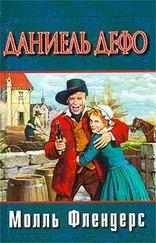Даниэль Дефо - History of the Plague in London
Здесь есть возможность читать онлайн «Даниэль Дефо - History of the Plague in London» весь текст электронной книги совершенно бесплатно (целиком полную версию без сокращений). В некоторых случаях можно слушать аудио, скачать через торрент в формате fb2 и присутствует краткое содержание. Год выпуска: 2014, Издательство: epubBooks Classics, Жанр: Историческая проза, на английском языке. Описание произведения, (предисловие) а так же отзывы посетителей доступны на портале библиотеки ЛибКат.
- Название:History of the Plague in London
- Автор:
- Издательство:epubBooks Classics
- Жанр:
- Год:2014
- ISBN:нет данных
- Рейтинг книги:4 / 5. Голосов: 1
-
Избранное:Добавить в избранное
- Отзывы:
-
Ваша оценка:
- 80
- 1
- 2
- 3
- 4
- 5
History of the Plague in London: краткое содержание, описание и аннотация
Предлагаем к чтению аннотацию, описание, краткое содержание или предисловие (зависит от того, что написал сам автор книги «History of the Plague in London»). Если вы не нашли необходимую информацию о книге — напишите в комментариях, мы постараемся отыскать её.
History of the Plague in London — читать онлайн бесплатно полную книгу (весь текст) целиком
Ниже представлен текст книги, разбитый по страницам. Система сохранения места последней прочитанной страницы, позволяет с удобством читать онлайн бесплатно книгу «History of the Plague in London», без необходимости каждый раз заново искать на чём Вы остановились. Поставьте закладку, и сможете в любой момент перейти на страницу, на которой закончили чтение.
Интервал:
Закладка:
It seems they had been checked, for their open insulting religion in this manner, by several good people of every persuasion; and that [121] Their being checked.
and the violent raging of the infection, I suppose, was the occasion that they had abated much of their rudeness for some time before, and were only roused by the spirit of ribaldry and atheism at the clamor which was made when the gentleman was first brought in there, and perhaps were agitated by the same devil when I took upon me to reprove them; though I did it at first with all the calmness, temper, and good manners that I could, which, for a while, they insulted me the more for, thinking it had been in fear of their resentment, though afterwards they found the contrary. [122] This paragraph could hardly have been more clumsily expressed. It will be found a useful exercise to rewrite it.
These things lay upon my mind, and I went home very much grieved and oppressed with the horror of these men's wickedness, and to think that anything could be so vile, so hardened, and so notoriously wicked, as to insult God, and his servants and his worship, in such a manner, and at such a time as this was, when he had, as it were, his sword drawn in his hand, on purpose to take vengeance, not on them only, but on the whole nation.
I had indeed been in some passion at first with them, though it was really raised, not by any affront they had offered me personally, but by the horror their blaspheming tongues filled me with. However, I was doubtful in my thoughts whether the resentment I retained was not all upon my own private account; for they had given me a great deal of ill language too, I mean personally: but after some pause, and having a weight of grief upon my mind, I retired myself as soon as I came home (for I slept not that night), and, giving God most humble thanks for my preservation in the imminent danger I had been in, I set my mind seriously and with the utmost earnestness to pray for those desperate wretches, that God would pardon them, open their eyes, and effectually humble them.
By this I not only did my duty, namely, to pray for those who despitefully used me, but I fully tried my own heart, to my full satisfaction that it was not filled with any spirit of resentment as they had offended me in particular; and I humbly recommend the method to all those that would know, or be certain, how to distinguish between their zeal for the honor of God and the effects of their private passions and resentment.
I remember a citizen, who, having broken out of his house in Aldersgate Street or thereabout, went along the road to Islington. He attempted to have gone [123] "To have gone," i.e., to go.
in at the Angel Inn, and after that at the White Horse, two inns known still by the same signs, but was refused, after which he came to the Pyed [124] Spotted.
Bull, an inn also still continuing the same sign. He asked them for lodging for one night only, pretending to be going into Lincolnshire, and assuring them of his being very sound, and free from the infection, which also at that time had not reached much that way.
They told him they had no lodging that they could spare but one bed up in the garret, and that they could spare that bed but for one night, some drovers being expected the next day with cattle: so, if he would accept of that lodging, he might have it, which he did. So a servant was sent up with a candle with him to show him the room. He was very well dressed, and looked like a person not used to lie in a garret; and when he came to the room, he fetched a deep sigh, and said to the servant, "I have seldom lain in such a lodging as this." However, the servant assured him again that they had no better. "Well," says he, "I must make shift. [125] "Make shift," i.e., endure it.
This is a dreadful time, but it is but for one night." So he sat down upon the bedside, and bade the maid, I think it was, fetch him a pint of warm ale. Accordingly the servant went for the ale; but some hurry in the house, which perhaps employed her other ways, put it out of her head, and she went up no more to him.
The next morning, seeing no appearance of the gentleman, somebody in the house asked the servant that had showed him upstairs what was become of him. She started. "Alas!" says she, "I never thought more of him. He bade me carry him some warm ale, but I forgot." Upon which, not the maid, but some other person, was sent up to see after him, who, coming into the room, found him stark dead, and almost cold, stretched out across the bed. His clothes were pulled off, his jaw fallen, his eyes open in a most frightful posture, the rug of the bed being grasped hard in one of his hands, so that it was plain he died soon after the maid left him; and it is probable, had she gone up with the ale, she had found him dead in a few minutes after he had sat down upon the bed. The alarm was great in the house, as any one may suppose, they having been free from the distemper till that disaster, which, bringing the infection to the house, spread it immediately to other houses round about it. I do not remember how many died in the house itself; but I think the maidservant who went up first with him fell presently ill by the fright, and several others; for, whereas there died but two in Islington of the plague the week before, there died nineteen the week after, whereof fourteen were of the plague. This was in the week from the 11th of July to the 18th.
There was one shift [126] Device, expedient.
that some families had, and that not a few, when their houses happened to be infected, and that was this: the families who in the first breaking out of the distemper fled away into the country, and had retreats among their friends, generally found some or other of their neighbors or relations to commit the charge of those houses to, for the safety of the goods and the like. Some houses were indeed entirely locked up, the doors padlocked, the windows and doors having deal boards nailed over them, and only the inspection of them committed to the ordinary watchmen and parish officers; but these were but few.
It was thought that there were not less than a thousand houses forsaken of the inhabitants in the city and suburbs, including what was in the outparishes and in Surrey, or the side of the water they called Southwark. This was besides the numbers of lodgers and of particular persons who were fled out of other families; so that in all it was computed that about two hundred thousand people were fled and gone in all. [127] "In all" is evidently a repetition.
But of this I shall speak again. But I mention it here on this account: namely, that it was a rule with those who had thus two houses in their keeping or care, that, if anybody was taken sick in a family, before the master of the family let the examiners or any other officer know of it, he immediately would send all the rest of his family, whether children or servants as it fell out to be, to such other house which he had not in charge, and then, giving notice of the sick person to the examiner, have a nurse or nurses appointed, and having another person to be shut up in the house with them (which many for money would do), so to take charge of the house in case the person should die.
This was in many cases the saving a whole family, who, if they had been shut up with the sick person, would inevitably have perished. But, on the other hand, this was another of the inconveniences of shutting up houses; for the apprehensions and terror of being shut up made many run away with the rest of the family, who, though it was not publicly known, and they were not quite sick, had yet the distemper upon them; and who, by having an uninterrupted liberty to go about, but being obliged still to conceal their circumstances, or perhaps not knowing it themselves, gave the distemper to others, and spread the infection in a dreadful manner, as I shall explain further hereafter.
Читать дальшеИнтервал:
Закладка:
Похожие книги на «History of the Plague in London»
Представляем Вашему вниманию похожие книги на «History of the Plague in London» списком для выбора. Мы отобрали схожую по названию и смыслу литературу в надежде предоставить читателям больше вариантов отыскать новые, интересные, ещё непрочитанные произведения.
Обсуждение, отзывы о книге «History of the Plague in London» и просто собственные мнения читателей. Оставьте ваши комментарии, напишите, что Вы думаете о произведении, его смысле или главных героях. Укажите что конкретно понравилось, а что нет, и почему Вы так считаете.












